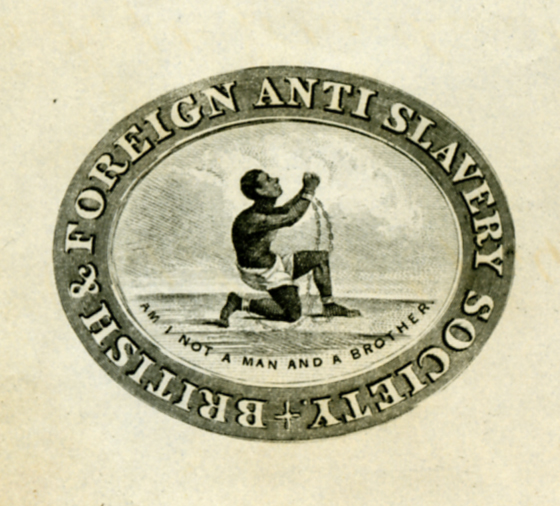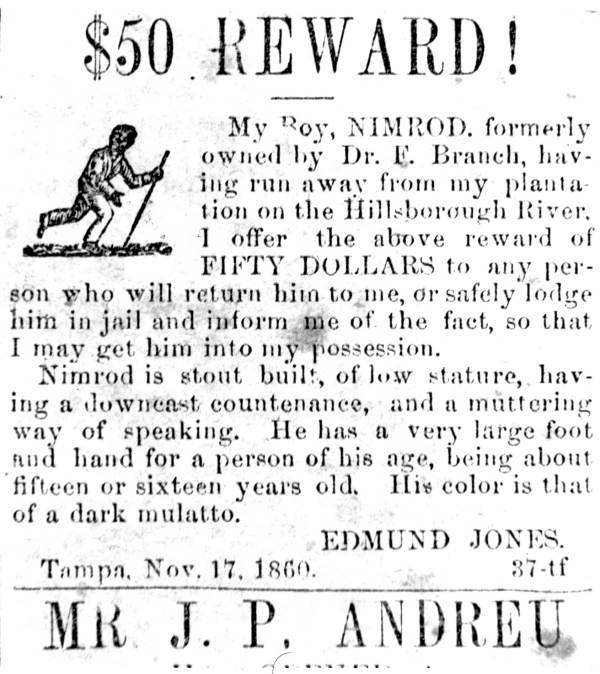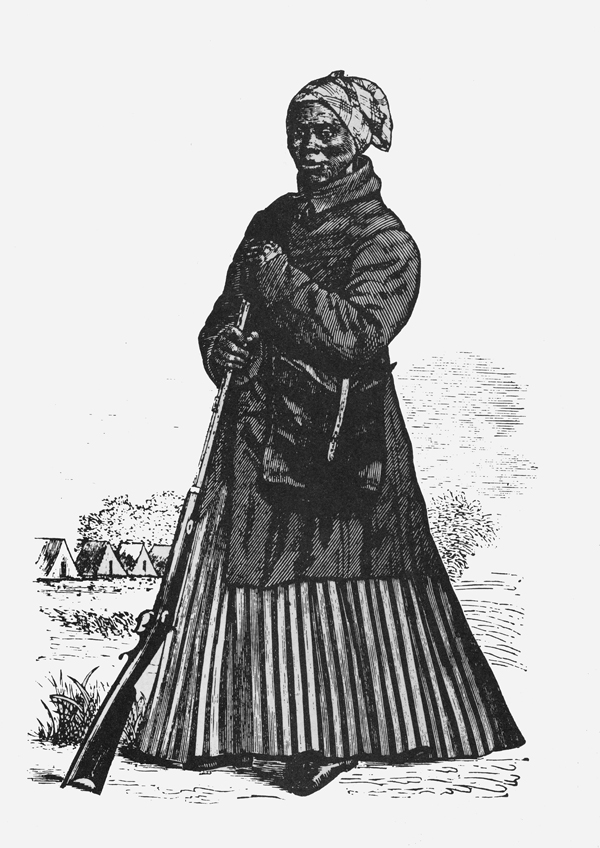Description of previous item
Description of next item
Harriet Tubman's Florida Legacy
Published February 2, 2013 by Florida Memory
Many might assume that the Underground Railroad traveled in one direction: north to freedom, away from slavery and the plantations of the South. Few realize that runaway slaves also fled south into Florida for almost two centuries before the Civil War.
Harriet Tubman, known as “The Conductor” of the Underground Railroad, spent time in Florida during her years of fighting for freedom. Born into slavery in Maryland, circa 1820, Tubman escaped in 1849 or 1850. She made numerous return trips to the South in order to free relatives and complete strangers alike. Tubman and her associates relied on a series of safe houses along the Underground Railroad. These stopping points represented a network of Abolitionists committed to aiding escaped slaves in pursuit of freedom. Scholars estimate that Tubman personally conducted at least 300 slaves to freedom in the 1850s and 1860s.

Excerpt from the letterhead of the British & Foreign Antislavery Society on a letter to Florida Governor John Branch, October 8, 1844
Because of the Fugitive Slave Act, passed in 1850, the final destination for many runaways was Canada. Enforcement of the Act in northern cities and towns meant living in fear of roving slave catchers and the possibility of re-enslavement.
Tubman’s reputation for successfully transporting slaves to freedom became such that the Maryland Legislature at one point offered $12,000 for her capture; slave owners in the area raised the bounty to $40,000.

Tampa newspaper advertisement offering a reward for the return of a runaway slave, November 17, 1860
In addition to her clandestine activities, Tubman served in an official capacity during the Civil War as a nurse, cook, and spy for the Union War Department. She cared for soldiers with herbal treatments and using skills honed on the Underground Railroad she helped emancipate African-American men for service in the Union Army.

Excerpt from “Atlas to Accompany the Official Records of the Union and Confederate Armies, 1861-1865: General Topographical Map, Sheet XII” showing northeast Florida, ca. 1865
In Florida and South Carolina, the men recruited by Tubman conducted raids and guerilla warfare against plantations along the St. Marys and St. Johns Rivers. They carried off additional slaves as well as goods to aid in the war effort and in several instances exchanged fire with Confederate troops. Tubman accompanied the men on some of these expeditions and reported the intelligence gathered to Union officers.
So valuable was her service, the federal government authorized a pension for Tubman after the Civil War. Harriet Tubman would have been a remarkable person during any period in history. It is especially significant that a woman, illiterate and born into slavery, accomplished so much and that field commanders during the Civil War sought the knowledge and assistance of an African-American in the war to end slavery.
Cite This Article
Chicago Manual of Style
(17th Edition)Florida Memory. "Harriet Tubman's Florida Legacy." Floridiana, 2013. https://www.floridamemory.com/items/show/257954.
MLA
(9th Edition)Florida Memory. "Harriet Tubman's Florida Legacy." Floridiana, 2013, https://www.floridamemory.com/items/show/257954. Accessed February 13, 2026.
APA
(7th Edition)Florida Memory. (2013, February 2). Harriet Tubman's Florida Legacy. Floridiana. Retrieved from https://www.floridamemory.com/items/show/257954

 Listen: The Assorted Selections Program
Listen: The Assorted Selections Program